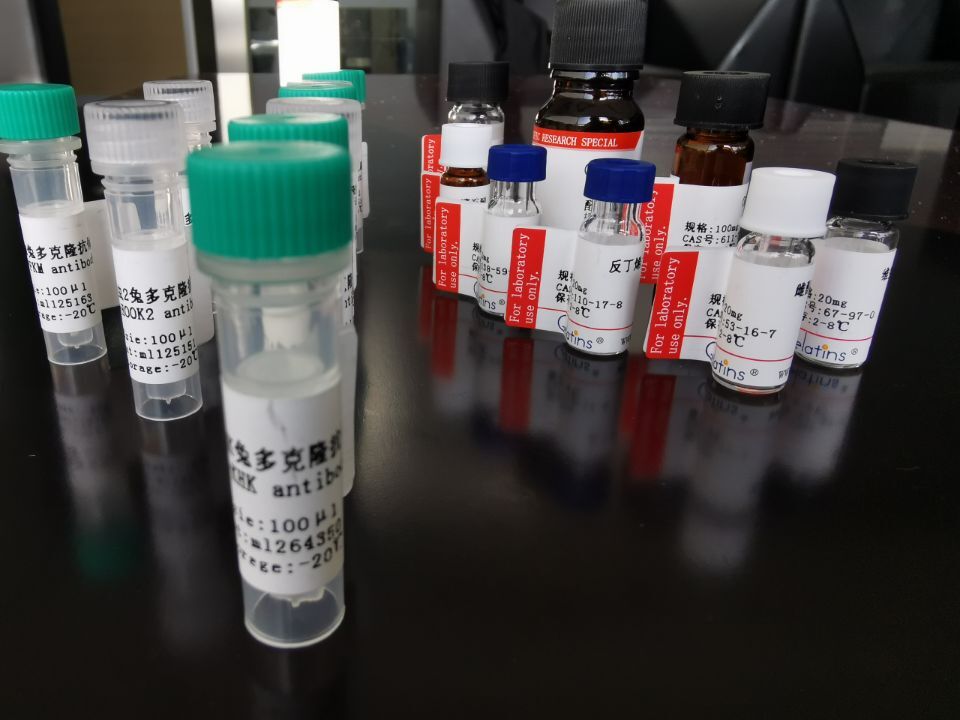中文名稱: KCNJ11抗原(重組蛋白)
英文名稱: KCNJ11 Antigen (Recombinant Protein)
別 名: BIR; HHF2; PHHI; IKATP; TNDM3; KIR6.2
儲(chǔ) 存: 冷凍(-20℃)
相關(guān)類別: 抗原
概 述:
|
Fusion protein corresponding to a region derived from 167-390 amino acids of human KCNJ11 |
|
Full name: |
potassium inwardly-rectifying channel, subfamily J, member 11 |
|
Synonyms: |
BIR; HHF2; PHHI; IKATP; TNDM3; KIR6.2 |
|
Swissprot: |
Q14654 |
|
Gene Accession: |
BC112358 |
|
Purity: |
>85%, as determined by Coomassie blue stained SDS-PAGE |
|
Expression system: |
Escherichia coli |
|
Tags: |
His tag C-Terminus, GST tag N-Terminus |
|
Background: |
Potassium channels are present in most mammalian cells, where they participate in a wide range of physiologic responses. The protein encoded by this gene is an integral membrane protein and inward-rectifier type potassium channel. The encoded protein, which has a greater tendency to allow potassium to flow into a cell rather than out of a cell, is controlled by G-proteins and is found associated with the sulfonylurea receptor SUR. Mutations in this gene are a cause of familial persistent hyperinsulinemic hypoglycemia of infancy (PHHI), an autosomal recessive disorder characterized by unregulated insulin secretion. Defects in this gene may also contribute to autosomal dominant non-insulin-dependent diabetes mellitus type II (NIDDM), transient neonatal diabetes mellitus type 3 (TNDM3), and permanent neonatal diabetes mellitus (PNDM). Multiple alternatively spliced transcript variants that encode different protein isoforms have been described for this gene. |
 購物車
購物車 幫助
幫助
 021-54845833/15800441009
021-54845833/15800441009
